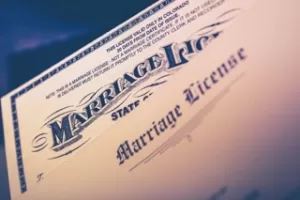One of the most disconcerting things that can happen to an individual is to receive notice that they have had a judgment entered against them, without their ever being present in court. This is known as a “default judgment,” and it happens quite frequently in Indiana courts. There are several reasons why a default judgment may be entered. Perhaps a defendant knows that he doesn’t have a strong case, and decides not to show up. Perhaps a defendant simply ignores court notices and doesn’t feel like being burdened with the legal process.
However, there are some occasions when a default judgment is entered for other reasons, for which the defendant bears no blame. Perhaps the notification of the lawsuit was sent to the wrong address. Perhaps the notification was never sent at all. Perhaps the judgment was improper or inaccurate for other reasons. In some of these cases, it may be possible to have a default judgment overturned, or “vacated.”
Default judgments in Indiana courts are largely covered under Indiana Trial Rule 55. The Indiana Rules of Trial Procedure govern procedures for judges and litigants in Indiana courts. Trial Rule 55 spells out the process that a party must walk through in order to obtain a default judgment. Additionally, however, Part C of Rule 55 gives instructions on how a default judgment may be set aside: “A judgment by default which has been entered may be set aside by the court for the grounds and in accordance with the provisions of Rule 60(B).”
In order to have a judgment overturned, you will need to take several steps (the order or need for these steps may vary from court to court). The first step is to review Indiana Trial Rule 60. Trial Rule 60 offers several grounds upon which a judgment may be vacated. Part A of the rule offers relief due to clerical mistake – an error made by the court, the court clerk, or the court’s office. While such errors do offer a direct form of relief, they are fairly rare, and most litigants will not be able to count on them to have a judgment overturned. As mentioned above, Trial Rule 55 directs litigants to Part B of Trial Rule 60 for relief from default judgment, and that is where most individuals will find the greatest opportunity to have a default judgment overturned.
The bases for relief provided in TR 60(B) include the following:
- Mistake, surprise, or excusable neglect
- Newly discovered evidence
- Fraud or other misconduct of the adverse party
- The party against whom the judgment was ordered did not have actual knowledge of the action or the judgment
- except in the case of a divorce decree, the record fails to show that such party was represented by a guardian or other representative [this section has further requirement details, please see the direct language]
- the judgment has been satisfied, released, or discharged, or a prior judgment upon which it is based has been reversed or otherwise vacated, or it is no longer equitable that the judgment should have prospective application, or
- any reason justifying relief from the operation of the judgment, other than those reasons set forth in sub-paragraphs (1), (2), (3), and (4).
The first step in seeking relief from a judgment is to file a motion with the relevant court. The motion will need to set out the factors for the court as to why the judgment should be overturned. Practically speaking, most people who seek to have default judgments overturned do so on the basis of improper service – that is, they claim that they were never properly notified of the complaint or any of the proceedings leading to the judgment.
Once the court has received your motion to vacate, and the judge has had the opportunity to review it, one of three things can happen: 1) the judge may deny the motion, and determine that the judgment was fairly applied; 2) the judge may choose to vacate the judgment immediately, and set the matter to be reheard; or 3) the judge may not make a final decision on the judgment, but rather set a hearing to determine whether the judgment should be vacated.
This will bring you to step two. If the judge immediately grants your motion to vacate (more likely to occur in small claims courts), then the matter will be reopened for trial, and you will need to either work out a settlement with the opposing party, or be prepared to show up for trial and present your case. If, on the other hand, the judge does not make an immediate decision on vacating the judgment, but rather sets a hearing on the matter, then you will need to show up at the appointed time, and either you or your attorney will need to present arguments and evidence to show the court why the initial judgment should be overturned. In such a case, be prepared with plenty of documentation, witness testimony, and any other evidence you feel is pertinent, to show the judge clearly that the default judgment rendered against you was unfair and against the letter or the spirit of the law. Remember that, to a large extent, the vacating of a judgment is left to the judge’s discretion. Therefore, it is imperative that you prepare fully, and present a strong case that will be persuasive to the court.
If you feel that a default judgment has been unfairly entered against you, you can seek to have it vacated by a court under Indiana Rules of Trial Procedure 55 and 60. You can challenge a default judgment that you feel is unwarranted by properly submitting a motion to the relevant court, presenting evidence, and making arguments to the court as to why the judgment was unfair.
Contact us if you have any additional questions or need assistance with a legal matter.
NOTE
All legal references are made with respect to Indiana law. Please check the laws of your local jurisdiction if you live in another state.
The articles in this blog are for informational purposes only. No attorney-client relationship is established through the publication of these articles.







